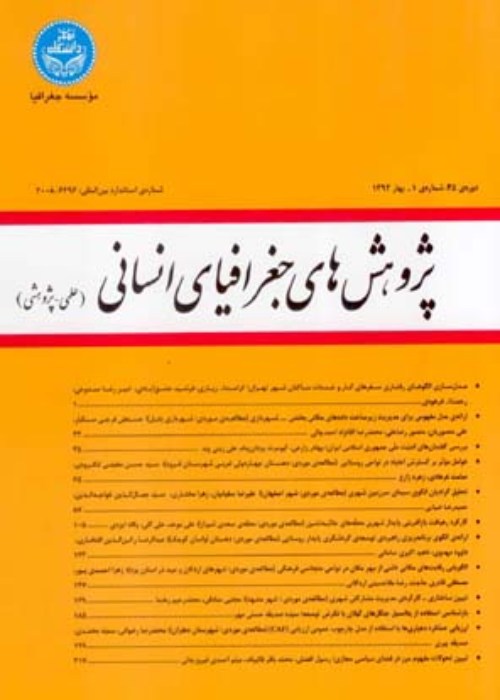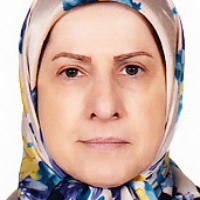Cultural and social integration in Central Eurasia
One of the most important events of the twentieth century was undoubtedly the disintegration of the Soviet Union, which opened a new phase of multidimensional interaction for both successor states and other countries involved in this historical evolution. The post-Soviet countries are confronted with the consequences and legacies of their historical past that have profound implications for the convergence of regional countries. Russia and other post-Soviet countries have inherited similar institutions from the past, including state institutions, political, social and security mentalities, political culture, the style of government-society relations. The newly independent states were trying to solve their domestic problems with the support of foreign powers, but the initial enthusiasm for integration with the Western countries subsided. Similar problems emerged in countries with similar cultural and ethnic structures. It can be argued that the trend toward convergent policies has taken a long time. Shared values and norms and similar mentalities can help Eurasian convergence. In this paper, the concept of social and cultural integration in Eurasia in the post-Soviet era with regard to the soft power of Russia in the Eurasian region is examined by examining the factors of religion, language, media and education to show the social and cultural integration in Eurasia at the level What has been going on within the region and beyond since 1992? It is hypothesized that social and cultural integration in Eurasia, influenced by Russia's soft power, has a clear perspective on political and economic liberalization and the decline of authoritarianism elsewhere in the region and the process of globalization.In this article, Russia is considered a hegemonic power in the post-Soviet space. Developments in the post-Soviet period show that Russia is unwilling to back down from its role as a regulatory player in Central Eurasian affairs. Russia's post-collapse foreign policy is based on a combination of pragmatism and a commitment to the traditional desire to have a plan for a great power. The position of Central Eurasia in Russian foreign policy has not changed. Russia seeks to excel in Eurasian integration, including cultural and social integration. When Putin came to power, he put bilateral relations with countries in the region on the agenda. Although the organization has not been successful in terms of member convergence, favorable areas for convergence among its members are notable, including the Russian Monroe religion, the presence of racists in the former Soviet republics, and the region's energy and military dependence on Russia. The monopoly economies of these countries, which have made each other dependent on exports and imports, make Russian the second language of most of the republics that survived the collapse of the Soviet Union, maintain border security, and cooperate in the fight against fundamentalism and drug trafficking. In this article, after a brief look at the fate of national cultures in the world era and culture, the impact on regional convergence under the cultural and social treatment of the Soviet era and the soft power of Russia in the Yeltsin and Putin eras. Then check the usability of the software including Russian language, religion and education system. The method of writing this article is descriptive-analytical and with boron collecting data from authoritative scientific sources: books, scientific-research articles and licensed websites.In this regard each country achieves the preservation and strengthening of its national, ethnic and religious identity through the better cultural integration of the regions. Thus, cultural convergence is not only a threat to preserve and strengthen the identity of the nations of the region, but also confronts external and threatening factors of national identities, such as extremist currents. While the nations of Central Asia and the Caucasus have many historical, cultural, religious and religious ties, due to negligence, incompetence and unfounded aspirations, today some cultural ties originate. Disagreements have become like disputes over cultural and literary luminaries.The following conditions are necessary to create regional cultural convergence:- Understand the importance of the issue of extremism as a serious threat and common challenge, by all countries in the region- Lack of baseless and destructive synergistic superiorityExplain key and common cultural values among the countries of the region- Group cohesion of the countries of the region and having the spirit of collective work, interaction and cultural synergy- Active participation of all countries in the region in designing and implementing a roadmap to counter extremist currents and consensus of member countries on this solutionAdequate preparation and flexibility for quick decisions and the use of new, creative and innovative approaches, methods and tools against extremism. The cultural system was formed in 1920-1930 and continued until 1980 despite some changes. In the mid-1980s, Gorbachev made major changes in Soviet culture with the performance of Glasnost and Perestroika, which eased ideological and media pressure on the media and administrative control of the country's educational and cultural institutions. After the collapse of the Soviet Union, Yeltsin undertook fundamental economic reforms and encouraged integration with the Western world. First, steps were taken to regain control of Russia in the region. However, the Russian elite sought to expand Russian-Western relations. From 1993 onwards, Russian elites began to emphasize the importance of post-Soviet geography and soft power policies in the region. These efforts were initially made by Yevgeny Primakov and the Eurasianists, but the policies implemented for convergence were not successful. With the advent of the Putin era, Russia began to develop soft power tools by pursuing policies to maximize its interests in the post-Soviet space. In the post-Soviet space, Russia strengthened its position in Central Eurasia as part of a policy of soft power. This ability is based on two important tools: language and education. Russia began to develop multilateral and bilateral relations, in a preventive manner, with the former Soviet republics. Russia is developing its soft power capabilities, but many of its problems have not yet been resolved so that it can be considered a powerful soft power. . Both soft power and hard power policies are implemented in parallel with creating a favorable environment for the Russian Federation in post-Soviet geography.
Eurasia , culture , Integration , Russia , Soft Power
- حق عضویت دریافتی صرف حمایت از نشریات عضو و نگهداری، تکمیل و توسعه مگیران میشود.
- پرداخت حق اشتراک و دانلود مقالات اجازه بازنشر آن در سایر رسانههای چاپی و دیجیتال را به کاربر نمیدهد.




